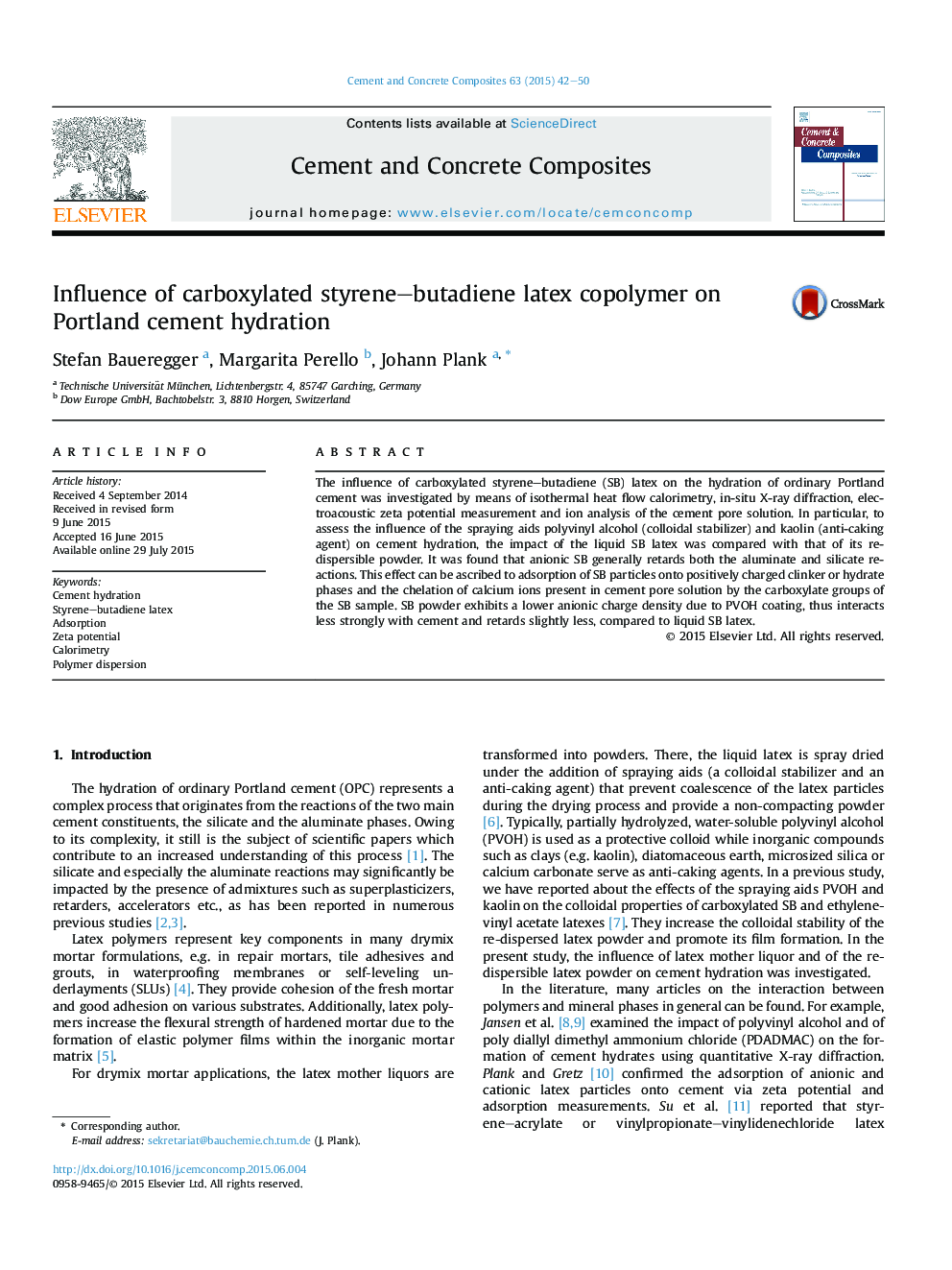| Article ID | Journal | Published Year | Pages | File Type |
|---|---|---|---|---|
| 1454467 | Cement and Concrete Composites | 2015 | 9 Pages |
The influence of carboxylated styrene–butadiene (SB) latex on the hydration of ordinary Portland cement was investigated by means of isothermal heat flow calorimetry, in-situ X-ray diffraction, electroacoustic zeta potential measurement and ion analysis of the cement pore solution. In particular, to assess the influence of the spraying aids polyvinyl alcohol (colloidal stabilizer) and kaolin (anti-caking agent) on cement hydration, the impact of the liquid SB latex was compared with that of its re-dispersible powder. It was found that anionic SB generally retards both the aluminate and silicate reactions. This effect can be ascribed to adsorption of SB particles onto positively charged clinker or hydrate phases and the chelation of calcium ions present in cement pore solution by the carboxylate groups of the SB sample. SB powder exhibits a lower anionic charge density due to PVOH coating, thus interacts less strongly with cement and retards slightly less, compared to liquid SB latex.
